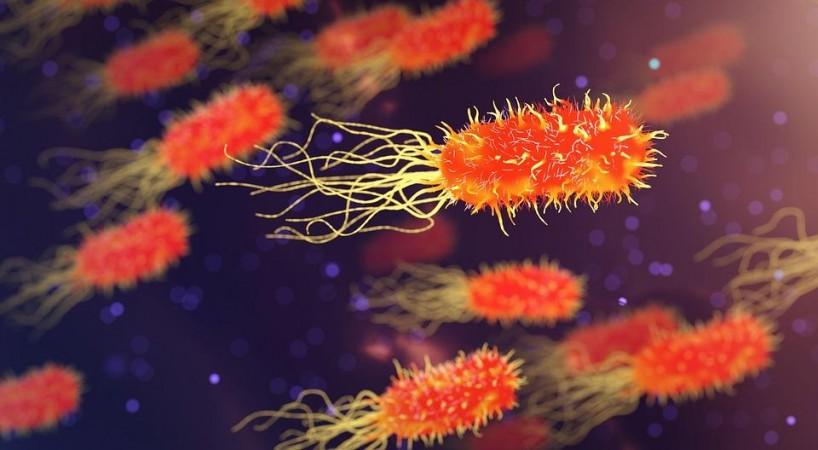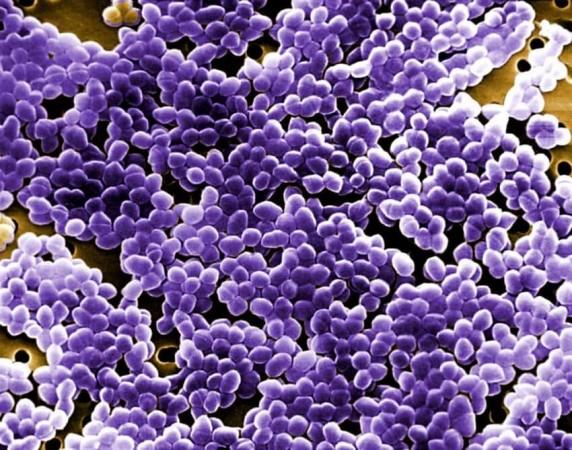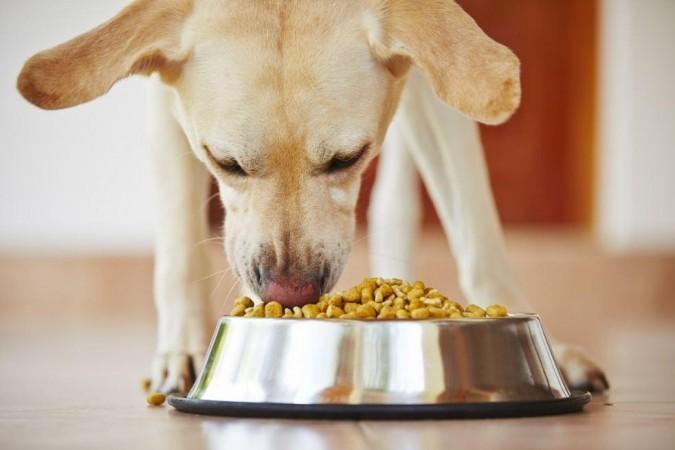Pet parents will leave no stone unturned to provide only the best of foods for their furbabies. With a wide range of foods to choose from, they can be spoilt for choices. However, what if these very foods harbored bacteria that were resistant to multiple drugs? Now, scientists have found that raw dog food can be a major source of antibiotic-resistant bacteria.
According to the study that is being presented at the European Congress of Clinical Microbiology & Infectious Diseases (ECCMID), the multi-drug resistant bacteria—Enterococci—found in raw dog food were identical to those found in hospitalized patients across several European countries. The research stated that the rising habit of feeding dogs with raw food could be leading to the spread of antibiotic-resistant bacteria.
"The close contact of humans with dogs and the commercialization of the studied brands in different countries poses an international public health risk," said Dr. Ana R. Freitas, lead author of the study, in a statement. The scientific article describing the findings in detail is yet to be published.
Resistance to Several Drugs

A pathogen is considered to possess AMR (antimicrobial resistance) when it develops resistance against drugs designed to destroy it. Having rendered existing medications such as antibiotics, antifungals, antiparasitics, and antivirals, ineffective against them, they become 'superbugs' that are notoriously difficult to kill.
Methicillin-resistant Staphylococcus aureus (MRSA) bacteria (which causes several hard-to-treat infections in different parts of the body) and Candida auris (which causes candidiasis) are examples of such multi-drug resistant pathogens. Currently, over 700,000 deaths per year are attributed to AMR. If left unchecked, up to 10 million lives per year could be lost by 2050 due to it. Also, the lack of hastened development of antimicrobials could result in healthcare costs of $US100 trillion within the said period.
Enterococci are lactic acid bacteria (LAB) that usually exist in the human gastrointestinal tract and female genital tract. They are commensal (i.e) they use the nutrition that is available from the host but does not share a close association with it. However, they can be opportunistic and enter the bloodstream; becoming pathogenic causing illnesses such as meningitis, diverticulitis, and endocarditis, among others.
Looking for Multi-drug Resistant Bacteria

For the study, the authors examined 55 samples —22 wet, 14 raw-frozen, 8 dry, 7 treats, and 4 semi-wet—from 25 commercially sold dog foods that are available locally (in Portugal) and internationally, for enterococci. Beef, chicken, duck, goose, lamb, salmon, turkey, and vegetables were the ingredients that the raw-frozen comprised of.
It was found that thirty samples (54 percent) contained enterococci. Over 40 percent of the observed were resistant to multiple antibiotics such as ampicillin, ciprofloxacin, chloramphenicol, erythromycin, gentamicin, and streptomycin. In addition to this, 4 percent (2 percent each) of the bacteria were resistant to vancomycin and teicoplanin.
23 percent of enterococci exhibited resistance towards linezolid. Resistance to linezolid is of serious concern as it is a last-resort antibiotic. It is used to treat severe infections that have failed to respond to regular antibiotics. Interestingly, multidrug-resistant enterococci were present in all the raw food samples, including those that exhibited resistance to linezolid. In comparison, the multidrug-resistant bacteria were found only in three non-raw samples.
Need for Concern

Through genetic sequencing, the scientists learnt that certain multi-drug resistant enterococci found in raw dog food were identical to those isolated from hospitalized patients in Germany, the Netherlands, and the UK. Bacteria that are genetically identical to these bacteria have also been noted in wastewater and farm animals in the UK.
Using another experiment, antibiotic resistance genes from the bacteria isolated from dog food were transferred to other experimental bacteria. This suggests that such transference can occur naturally as well. According to the researchers, dog food can serve as the source of multi-drug resistant bacteria and may potentially cross over to humans.
"European authorities must raise awareness about the potential health risks when feeding raw diets to pets and the manufacture of dog food, including ingredient selection and hygiene practices, must be reviewed," asserted Dr. Freitas, calling for raising awareness about the concerning issue. She emphasized: "Dog owners should always wash their hands with soap and water right after handling pet food and after picking up feces."












!['Had denied Housefull franchise as they wanted me to wear a bikini': Tia Bajpai on turning down bold scripts [Exclusive]](https://data1.ibtimes.co.in/en/full/806605/had-denied-housefull-franchise-they-wanted-me-wear-bikini-tia-bajpai-turning-down-bold.png?w=220&h=138)
![Nayanthara and Dhanush ignore each other as they attend wedding amid feud over Nayanthara's Netflix documentary row [Watch]](https://data1.ibtimes.co.in/en/full/806599/nayanthara-dhanush-ignore-each-other-they-attend-wedding-amid-feud-over-nayantharas-netflix.jpg?w=220&h=138)



